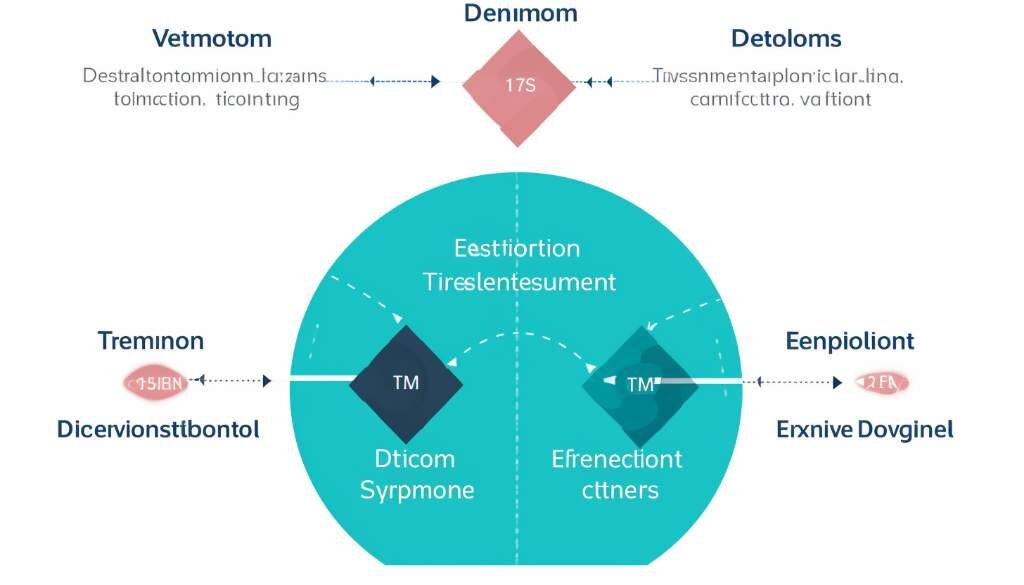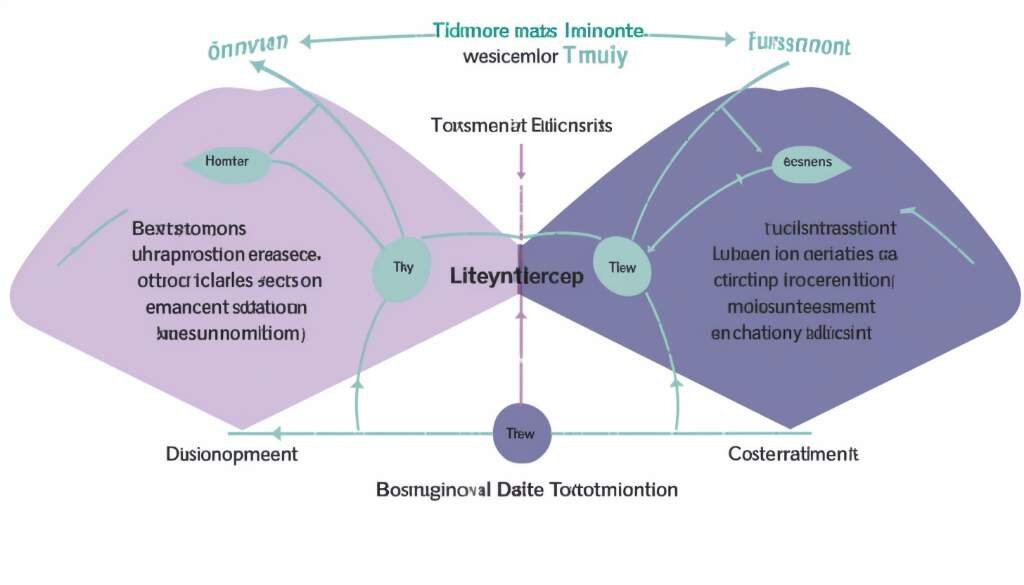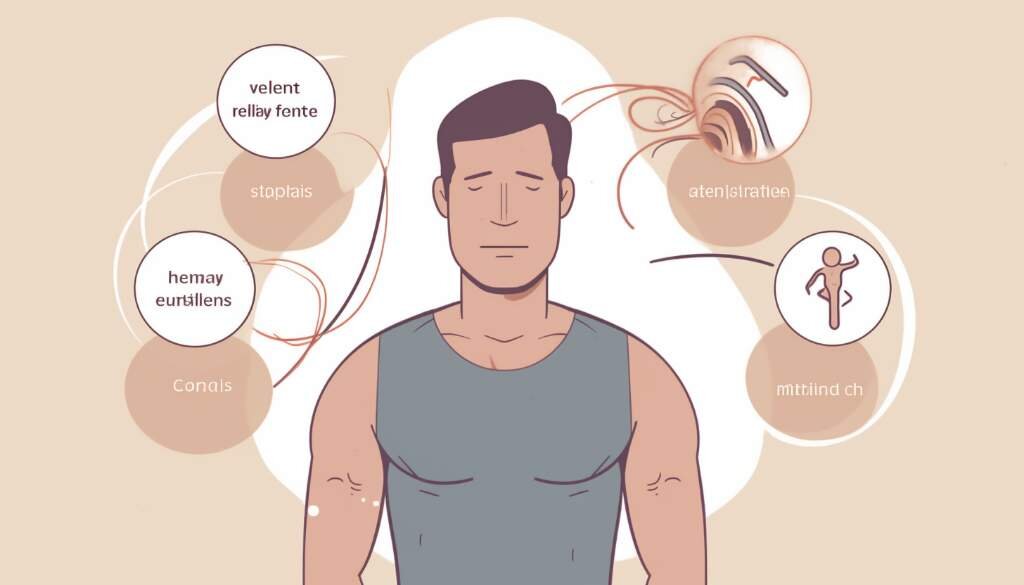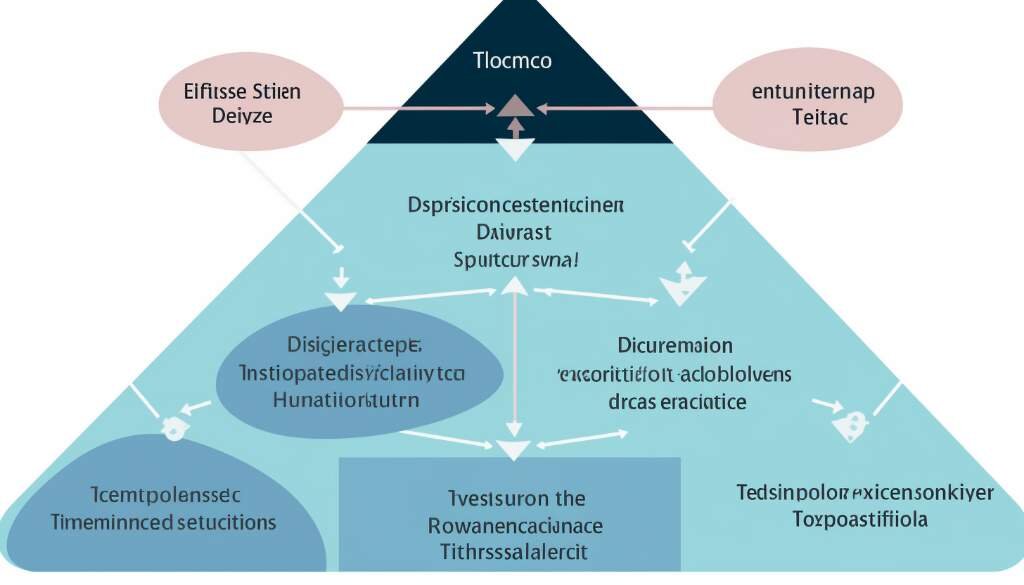
Introduction
Testosterone plays a significant role in various aspects of health, including chronic kidney disease (CKD) and other chronic diseases. CKD is a condition characterized by the gradual loss of kidney function over time. Research has shown that testosterone levels can be affected by CKD, and in turn, testosterone deficiency can have negative effects on kidney function.
This article aims to explore the relationship between testosterone and CKD, as well as the impact of testosterone deficiency on sexual dysfunction, chronic illness, and aging. We will also discuss the diagnosis and management of low testosterone levels.
Understanding the role of testosterone in CKD and other chronic diseases is crucial for healthcare professionals and individuals affected by these conditions. By examining the available research and discussing potential treatment options, we can gain insights into how testosterone deficiency affects overall health and well-being. Whether you are a healthcare professional or someone interested in learning more about testosterone and its role in chronic diseases, this article aims to provide informative and helpful insights.

The Role of Testosterone in Chronic Kidney Disease
The Role of Testosterone in Chronic Kidney Disease: Testosterone plays a significant role in chronic kidney disease (CKD). CKD is a progressive condition characterized by the gradual loss of kidney function. The decline in kidney function can lead to hormonal imbalances, including testosterone deficiency. Understanding the role of testosterone in CKD is crucial for effective management and treatment of the condition.
In the upcoming sections, we will delve into the various aspects of the relationship between testosterone and CKD. We will explore how testosterone levels impact kidney function, the prevalence of testosterone deficiency in CKD patients, and the potential benefits of testosterone supplementation. Additionally, we will examine the impact of testosterone deficiency on sexual dysfunction and its relevance to chronic diseases and aging.
Through comprehensive research, we will uncover the potential anabolic effects of testosterone in chronic illness and aging. This will include examining the use of testosterone as an anabolic therapy and the role of selective androgen receptor modulators.
To address low testosterone levels in CKD patients, we will explore diagnostic tests used to measure testosterone levels accurately. Furthermore, we will discuss the available treatment options for managing low testosterone.
By exploring these topics, we aim to provide a comprehensive understanding of the role of testosterone in chronic kidney disease. This knowledge can aid in the development of effective strategies for diagnosing, managing, and treating testosterone-related issues in CKD patients.
Testosterone and Kidney Function
Testosterone plays a crucial role in chronic kidney disease (CKD). It has been found to have an impact on kidney function and overall renal health. This sub-section will explore the relationship between testosterone and kidney function in more detail.
Studies have shown that testosterone has a direct effect on kidney function. The kidneys have receptors for testosterone, suggesting that it has a specific role in renal health. Testosterone has been found to regulate the production of red blood cells in the kidneys, which is important for maintaining proper kidney function. Additionally, testosterone has been shown to protect against kidney damage by reducing oxidative stress and inflammation.
A Mendelian randomization study conducted on individuals with CKD found that higher testosterone levels were associated with a reduced risk of developing kidney disease. This suggests that testosterone may have a protective effect on kidney function and could potentially be used as a therapeutic intervention for CKD.
Furthermore, testosterone deficiency is common in individuals with CKD. This could be due to altered testosterone metabolism in the presence of kidney dysfunction. The kidneys play a crucial role in the metabolism of testosterone, and any impairment in kidney function can lead to lower testosterone levels. Additionally, the hormonal imbalances and inflammation associated with CKD can also contribute to testosterone deficiency.
Hypogonadism, a condition characterized by low testosterone levels, is commonly observed in individuals with CKD. This can have significant implications on overall health and well-being. Symptoms of hypogonadism in CKD include fatigue, decreased muscle mass, decreased libido, and erectile dysfunction. These symptoms can further worsen the quality of life for individuals already dealing with the challenges of CKD.
In some cases, testosterone deficiency may persist even after renal transplantation. This could be due to various factors such as the use of immunosuppressant medications and the presence of chronic inflammation. Therefore, individuals who have undergone renal transplantation may also require testosterone supplementation to address the persisting deficiency.
Testosterone supplementation has been explored as a potential treatment option for individuals with CKD and testosterone deficiency. Recent studies have shown promising results, with testosterone replacement therapy leading to improvements in muscle strength, exercise capacity, and overall well-being. However, further research is needed to fully understand the benefits and risks of testosterone supplementation in this population.
In conclusion, testosterone has a significant role in kidney function and overall renal health. It regulates red blood cell production, protects against kidney damage, and deficiency of testosterone is common in individuals with CKD. Understanding the relationship between testosterone and kidney function can help in developing targeted interventions to improve the overall health outcomes for individuals with CKD.
Mendelian Randomization Study
Mendelian randomization studies have emerged as a powerful tool in understanding and establishing causal relationships between exposures and outcomes. In the context of chronic kidney disease (CKD) and testosterone, Mendelian randomization studies have provided valuable insights into the role of testosterone in CKD.
Mendelian randomization utilizes genetic variants as instrumental variables to investigate the causal effect of an exposure on an outcome. This approach helps overcome confounding factors and reverse causality biases commonly encountered in observational studies. In the case of CKD and testosterone, Mendelian randomization studies have used genetic variants associated with testosterone levels as instrumental variables to assess the causal impact of testosterone on kidney function.
Several Mendelian randomization studies have shown a suggestive protective effect of genetically higher testosterone levels on kidney function. These studies have demonstrated that individuals genetically predisposed to higher testosterone levels tend to have a lower risk of developing CKD and experiencing a decline in kidney function over time.
However, it is important to note that Mendelian randomization studies have inherent limitations. The validity of the results depends on the assumptions made, such as the genetic variants being valid instruments and the absence of pleiotropy (where the genetic variant affects multiple phenotypes). Furthermore, Mendelian randomization studies are limited by the availability of genetic data and the need for large-scale genetic studies.
Despite these limitations, Mendelian randomization studies provide valuable insights into the potential causal role of testosterone in CKD. They suggest that higher testosterone levels may have a protective effect on kidney function. However, more research is needed to fully understand the mechanisms and establish the clinical implications of these findings.

Testosterone Deficiency in Chronic Kidney Disease
Testosterone deficiency in chronic kidney disease (CKD) refers to the condition where there is an insufficient amount of testosterone hormone in individuals with CKD. Testosterone is an important hormone that is primarily produced in the testes and plays a vital role in various bodily functions. In CKD, there can be disruptions in the production, metabolism, and regulation of testosterone, leading to testosterone deficiency.
This section will explore several aspects related to testosterone deficiency in CKD. We will discuss the relationship between testosterone and kidney function, highlighting how CKD can impact testosterone production. Additionally, we will examine the findings from Mendelian randomization studies that shed light on the causal relationship between testosterone and kidney function.
Furthermore, this section will delve into the prevalence of testosterone deficiency in individuals with CKD. We will explore the mechanisms of testosterone metabolism and how CKD can contribute to hypogonadism, a condition characterized by low levels of testosterone. We will also discuss the occurrence of hypogonadism after renal transplantation and the potential role of testosterone supplementation in CKD treatment.
Understanding the implications of testosterone deficiency in chronic kidney disease is crucial for identifying and managing the related health issues. This section will provide an overview of the relationship between testosterone deficiency and chronic diseases, emphasizing the concept of multimorbidity.
Moreover, we will examine the impact of testosterone deficiency on sexual dysfunction. Exploring the symptoms and signs of testosterone deficiency will help shed light on its effects on sexual health. We will also discuss the relationship between comorbidity burden and testosterone deficiency, as well as the management and treatment options available.
Finally, we will explore the anabolic effects of testosterone in chronic illness and aging. This section will delve into the use of testosterone as an anabolic therapy and the emerging role of selective androgen receptor modulators.
The subsequent sections will provide a more detailed examination of the diagnostic tests for testosterone levels and the treatment options available for low testosterone. However, before we explore those aspects, let's delve deeper into the fascinating topic of testosterone deficiency in chronic kidney disease.
Testosterone Metabolism
In chronic kidney disease (CKD), testosterone metabolism is affected due to the impaired kidney function. Testosterone, which is primarily produced in the testes in males and ovaries in females, undergoes a complex process of metabolism in the body.
Testosterone is initially released into the bloodstream and binds to sex hormone-binding globulin (SHBG) and albumin, which act as carriers to transport testosterone throughout the body. Only a small fraction of testosterone remains unbound and is considered bioavailable or free testosterone.
Once testosterone reaches the target cells, it passes through the cell membrane and enters the cytoplasm. Inside the cell, testosterone undergoes enzymatic conversion to dihydrotestosterone (DHT) or estradiol. This conversion is catalyzed by the enzymes 5-alpha-reductase and aromatase, respectively.
The enzyme 5-alpha-reductase converts testosterone to DHT, which is a more potent androgen. DHT plays a crucial role in the development and function of the prostate gland, as well as in the regulation of hair growth. On the other hand, aromatase converts testosterone to estradiol, a form of estrogen. Estradiol is involved in a variety of physiological functions, including bone health and cardiovascular health.
In individuals with CKD, the impaired kidney function can disrupt the normal metabolism of testosterone. The kidneys play a crucial role in the elimination of waste products and metabolites from the body, including testosterone and its metabolites. Therefore, testosterone metabolism may be impaired in CKD, leading to alterations in the production and balance of testosterone, DHT, and estradiol.
These changes in testosterone metabolism can contribute to testosterone deficiency in individuals with CKD. Lower levels of testosterone may result in symptoms such as fatigue, decreased muscle mass and strength, decreased libido, and mood disturbances.
Hypogonadism in CKD
In patients with chronic kidney disease (CKD), hypogonadism is a common and significant complication. Hypogonadism refers to decreased functioning of the gonads, which in men results in lower testosterone levels. There are multiple factors that can contribute to hypogonadism in CKD.
One of the primary causes of hypogonadism in CKD is the disruption of the hypothalamic-pituitary-gonadal (HPG) axis. The HPG axis regulates the production and release of testosterone. In CKD, the dysfunction of the HPG axis leads to reduced gonadotropic hormones, such as luteinizing hormone (LH) and follicle-stimulating hormone (FSH), which are responsible for stimulating the testes to produce testosterone.
In addition to HPG axis dysfunction, other factors that contribute to hypogonadism in CKD include chronic inflammation, oxidative stress, uremic toxins, and altered sex hormone-binding globulin (SHBG) levels. These factors, either alone or in combination, contribute to the decreased production, metabolism, and availability of testosterone in patients with CKD.
The presence of hypogonadism in CKD has significant clinical implications. Testosterone deficiency negatively impacts several aspects of male health, including muscle mass and strength, bone density, sexual function, mood, and overall quality of life. Additionally, hypogonadism is associated with increased cardiovascular risk, insulin resistance, anemia, and frailty in CKD patients.
Managing hypogonadism in CKD involves addressing the underlying causes and providing testosterone replacement therapy when necessary. Treatment options may include intramuscular injections, transdermal patches, or gels containing testosterone. Dosages and treatment regimens are tailored to the individual patient's needs, taking into account their kidney function and other comorbidities.
Hypogonadism after Renal Transplantation
After undergoing a renal transplantation procedure, some individuals may experience hypogonadism, which is a condition characterized by low testosterone levels. Hypogonadism after renal transplantation is a common occurrence, affecting a significant percentage of patients.
The exact cause of hypogonadism after renal transplantation is not fully understood, but several factors may contribute to its development. One possible cause is the immunosuppressive medications that patients need to take after the transplantation. These medications, such as corticosteroids, can have a negative impact on testosterone production. Additionally, the underlying kidney disease and the transplantation procedure itself can cause damage to the testes, leading to reduced testosterone production.
Low testosterone levels can have various effects on individuals who have undergone renal transplantation. One of the main symptoms of hypogonadism is a decrease in sexual function. Men may experience a reduced sex drive, erectile dysfunction, and infertility. In addition to sexual dysfunction, hypogonadism can also lead to decreased muscle mass, decreased bone density, and increased fatigue.
Recognizing and managing hypogonadism after renal transplantation is important for improving the quality of life for these patients. Testosterone replacement therapy is often used to raise testosterone levels and alleviate the symptoms of hypogonadism. This therapy can be administered through injections, transdermal patches, gels, or pellets.
However, it is crucial to closely monitor patients undergoing testosterone replacement therapy, as excessive testosterone levels can have adverse effects, including an increased risk of cardiovascular disease. Regular follow-up visits with healthcare professionals are necessary to assess the effectiveness of the treatment and adjust the dosage if needed.
Testosterone Supplementation
Testosterone supplementation is a treatment option that can be considered for individuals with chronic kidney disease (CKD) who have testosterone deficiency. CKD is associated with a decline in testosterone levels, which can lead to various symptoms and health complications.
Testosterone supplementation involves the administration of exogenous testosterone to raise testosterone levels in the body. It can be administered through different routes, including injections, transdermal patches, gels, or pellets.
The goal of testosterone supplementation in CKD is to alleviate the symptoms of testosterone deficiency, improve overall well-being, and enhance quality of life. Some of the potential benefits of testosterone supplementation in CKD include:
- Improvement in sexual function: Testosterone is important for sexual health and function. Supplementation may help improve libido, sexual desire, erectile function, and overall sexual satisfaction in individuals with CKD.
- Increase in muscle mass and strength: Testosterone is an anabolic hormone that plays a crucial role in muscle growth and maintenance. Supplementation may lead to an increase in muscle mass, strength, and physical performance in individuals with CKD.
- Improvement in bone health: Testosterone is essential for maintaining bone density and strength. CKD is associated with an increased risk of bone loss and fractures. Testosterone supplementation may help prevent or slow down bone loss in individuals with CKD.
- Enhancement of mood and cognitive function: Testosterone deficiency can contribute to mood swings, depression, and cognitive impairment. Supplementation may help improve mood, well-being, and cognitive function in individuals with CKD.
However, it's important to note that testosterone supplementation should be approached with caution and under the guidance of a healthcare professional. There are potential risks and side effects associated with testosterone supplementation, including:
- Prostate health concerns: Testosterone can stimulate prostate growth and potentially exacerbate underlying prostate conditions. Regular monitoring of prostate health is essential in individuals receiving testosterone supplementation.
- Erythropoiesis stimulation: Testosterone supplementation may increase the production of red blood cells, leading to an elevation in hematocrit levels. This can increase the risk of blood clots and cardiovascular events.
- Suppression of endogenous testosterone production: Exogenous testosterone can suppress the natural production of testosterone by the testes. This can potentially lead to testicular atrophy and infertility.
Prior to initiating testosterone supplementation, comprehensive evaluation and close monitoring are crucial. It is important to assess the individual's overall health status, including cardiovascular health, prostate health, and hematocrit levels. Testosterone supplementation should only be considered after weighing the potential benefits against the risks and with careful consideration of the individual's specific circumstances.

Testosterone and Chronic Diseases: Multimorbidity
In addition to its role in chronic kidney disease (CKD), testosterone also plays a significant role in the development and management of various chronic diseases, leading to multimorbidity. Multimorbidity refers to the coexistence of two or more chronic conditions in an individual.
Testosterone deficiency has been associated with an increased risk of developing several chronic diseases. For example, low testosterone levels have been linked to an increased risk of cardiovascular disease, metabolic syndrome, type 2 diabetes, and obesity. Testosterone deficiency has also been associated with an increased risk of osteoporosis, depression, and cognitive decline.
This link between testosterone deficiency and chronic diseases is thought to be multifactorial. Low testosterone levels may contribute to the development of these diseases through various mechanisms, including decreased muscle mass, increased fat mass, insulin resistance, inflammation, and endothelial dysfunction.
Furthermore, the presence of chronic diseases may also contribute to testosterone deficiency. For instance, obesity, diabetes, and certain medications used to treat chronic diseases can lower testosterone levels. The bidirectional relationship between testosterone deficiency and chronic diseases creates a vicious cycle, further worsening the overall health and well-being of individuals with multimorbidity.
Addressing testosterone deficiency in individuals with chronic diseases is crucial for both disease management and overall health. Testosterone replacement therapy (TRT) has been shown to improve symptoms and quality of life in individuals with testosterone deficiency. However, it is essential to carefully evaluate the potential risks and benefits of TRT, considering each individual's specific circumstances and comorbidities.
In conclusion, testosterone deficiency is not only prevalent in individuals with chronic kidney disease but also plays a crucial role in the development and management of chronic diseases. Multimorbidity, the coexistence of multiple chronic conditions, further complicates the relationship between testosterone deficiency and overall health. Proper diagnosis, management, and treatment of testosterone deficiency are essential for individuals with chronic diseases to optimize their health outcomes and quality of life.

Impact of Testosterone Deficiency on Sexual Dysfunction
Sexual dysfunction is a common problem that can significantly impact the quality of life for individuals with testosterone deficiency. Testosterone is a hormone that plays a crucial role in sexual function, and when levels are deficient, it can lead to various sexual issues.
In this section, we will explore the impact of testosterone deficiency on sexual dysfunction. We will discuss the definition and explanation of this condition before delving into the specific topics covered in the following sub-sections. These sub-sections will provide further insights into the symptoms and signs of testosterone deficiency, the relationship between comorbidity burden and testosterone deficiency, and the management and treatment options available.
By understanding the impact of testosterone deficiency on sexual dysfunction, we can better address the needs of individuals with this condition and improve their overall well-being. Now, let's explore the topics within this section to gain a comprehensive understanding of this important issue.
Symptoms and Signs of Testosterone Deficiency
Testosterone deficiency, also known as hypogonadism, can lead to several symptoms and signs that affect sexual function and overall well-being. These symptoms can vary from person to person, but commonly include:
- Decreased libido: Testosterone plays a crucial role in sexual desire. Low testosterone levels can lead to a reduced interest in sexual activity and may contribute to a decline in sexual satisfaction.
- Erectile dysfunction: Testosterone helps regulate blood flow to the penis, and low levels of testosterone can result in difficulty achieving or maintaining an erection, leading to erectile dysfunction.
- Reduced muscle mass and strength: Testosterone is an anabolic hormone that helps build and maintain muscle mass. A deficiency in testosterone can lead to a decrease in muscle size and strength.
- Fatigue and decreased energy levels: Testosterone plays a role in maintaining energy levels and overall vitality. Low testosterone levels can result in fatigue, decreased motivation, and a lack of energy.
- Mood changes: Testosterone has an impact on mood regulation, and low levels of testosterone can contribute to symptoms such as irritability, depression, and decreased sense of well-being.
- Decreased bone density: Testosterone is important for maintaining bone health. A deficiency in testosterone can lead to a decrease in bone density, increasing the risk of osteoporosis and fractures.
- Changes in body composition: Testosterone helps regulate fat distribution in the body. Low levels of testosterone can lead to an increase in body fat and changes in body composition, with a decrease in muscle mass and an increase in fat mass.
- Difficulty concentrating and cognitive changes: Testosterone influences cognitive function, and a deficiency in testosterone may result in difficulties with concentration, memory, and cognitive performance.
If you experience any of these symptoms, it is important to consult with a healthcare professional for evaluation and diagnosis. They can perform tests to determine your testosterone levels and help develop a treatment plan to address testosterone deficiency and its impact on sexual function and overall well-being.
Comorbidity Burden and Testosterone Deficiency
The comorbidity burden refers to the presence of multiple chronic illnesses in an individual. Testosterone deficiency, also known as hypogonadism, is a condition characterized by low levels of testosterone hormone in the body. Numerous studies have indicated that there is a significant association between comorbidity burden and testosterone deficiency.
Research has shown that individuals with a higher number of comorbidities are more likely to experience testosterone deficiency. This relationship can be attributed to various factors. Chronic illnesses often lead to inflammation, oxidative stress, and hormonal imbalances, which can directly affect testosterone production and metabolism.
Moreover, the medications used to manage chronic diseases can also impact testosterone levels. For instance, certain medications like glucocorticoids and opioids have been shown to suppress testosterone production. Additionally, conditions like diabetes and obesity, which are commonly associated with comorbidities, can contribute to testosterone deficiency through insulin resistance and interference with hormone regulation.
The impact of comorbidity burden on testosterone deficiency extends beyond physiological mechanisms. Living with multiple chronic illnesses can negatively affect mental well-being and quality of life, leading to increased stress, anxiety, and depression. These psychological factors can further disrupt the endocrine system and contribute to hormonal imbalances, including testosterone deficiency.
It is important to note that testosterone deficiency itself can exacerbate the burden of comorbidities. Low testosterone levels have been linked to increased risks of cardiovascular diseases, metabolic syndrome, and osteoporosis. Furthermore, testosterone deficiency can contribute to muscle loss, fatigue, decreased libido, and sexual dysfunction, which can significantly impact the overall well-being of individuals with comorbidities.
To effectively manage comorbidity burden and testosterone deficiency, a comprehensive approach is required. This may involve optimizing the treatment of underlying chronic diseases, addressing lifestyle factors such as diet and exercise, and considering testosterone supplementation therapy under the guidance of a healthcare professional.
Management and Treatment
Management and Treatment
When it comes to managing and treating testosterone deficiency, there are several options available. The choice of treatment depends on the underlying cause of the deficiency, the severity of symptoms, and the individual patient's preferences.
One of the main treatment options for testosterone deficiency is testosterone replacement therapy (TRT). TRT involves administering exogenous testosterone to restore testosterone levels to a normal range. This can be done through various methods, including injections, gels, patches, and pellets.
Prior to starting TRT, it is important to conduct a thorough evaluation of the patient's overall health, including cardiovascular health and prostate health. Testosterone therapy may not be recommended for individuals with certain conditions, such as prostate cancer or severe cardiovascular disease. It is crucial to discuss the potential risks and benefits of TRT with a healthcare provider.
In addition to TRT, lifestyle modifications can also play a role in managing testosterone deficiency. Regular exercise, maintaining a healthy weight, and getting enough sleep can help optimize testosterone levels. Certain dietary changes, such as consuming a balanced diet with adequate protein, healthy fats, and micronutrients, can also support testosterone production.
Furthermore, managing underlying chronic conditions that contribute to testosterone deficiency is essential. In some cases, addressing kidney disease or other chronic illnesses may help improve testosterone levels naturally. Working closely with a healthcare provider to manage and optimize overall health is vital in the management of testosterone deficiency.
Overall, the management and treatment of testosterone deficiency in the context of sexual dysfunction require a comprehensive approach. This involves considering individual patient factors, addressing underlying health conditions, and potentially utilizing testosterone replacement therapy alongside lifestyle modifications. It is important to work closely with a healthcare provider to develop a personalized treatment plan that is tailored to the specific needs of each patient.

Anabolic Effects of Testosterone in Chronic Illness and Aging
Anabolic Effects of Testosterone in Chronic Illness and Aging refers to the positive impact that testosterone can have on muscle mass, bone density, and physical function in individuals with chronic illnesses or those experiencing the aging process.
In this section, we will explore various aspects related to the anabolic effects of testosterone in chronic illness and aging. We will discuss the use of testosterone as an anabolic therapy, as well as the potential benefits of selective androgen receptor modulators. Additionally, we will delve into the importance of diagnosing and managing low testosterone levels in order to optimize the anabolic effects.
Testosterone as Anabolic Therapy
Testosterone as anabolic therapy refers to the use of exogenous testosterone to promote muscle growth and improve physical function in individuals with chronic illness and aging.
Testosterone is a hormone that plays a crucial role in maintaining muscle mass, bone density, and overall physical function. In chronic illness and aging, testosterone levels tend to decline, leading to muscle loss, decreased physical performance, and increased frailty.
Anabolic therapy using testosterone has been studied as a potential intervention to counteract these effects and improve outcomes in individuals with chronic illness and aging.
Studies have shown that testosterone therapy in individuals with chronic illnesses, such as chronic kidney disease and heart failure, can lead to increased muscle mass, improved physical performance, and enhanced quality of life. Testosterone supplementation has been found to increase muscle protein synthesis, enhance muscle strength, and decrease fat mass.
However, it is important to note that testosterone therapy should be used judiciously and under the supervision of healthcare professionals. Potential risks associated with testosterone therapy include increased risk of cardiovascular events, prostate enlargement, and mood disturbances.
Therefore, the use of testosterone as anabolic therapy should be carefully considered on a case-by-case basis, taking into account the individual's overall health status, potential benefits, and risks.
Selective Androgen Receptor Modulators
In the context of anabolic effects of testosterone in chronic illness and aging, one interesting area of study is the use of Selective Androgen Receptor Modulators (SARMs) as a potential alternative to testosterone therapy.
SARMs are a class of compounds that selectively target androgen receptors in different tissues, leading to tissue-specific effects. They have gained attention in recent years due to their potential anabolic effects on muscle and bone without the unwanted androgenic side effects seen with traditional anabolic steroids.
Research on SARMs in the context of chronic illness and aging is ongoing, with some promising results. One study published in the Journal of Clinical Endocrinology and Metabolism found that a SARM called enobosarm improved lean body mass and physical function in older adults with cancer-related muscle wasting. Another study showed that a SARM called LGD-4033 increased muscle mass and strength in healthy older men.
These findings suggest that SARMs may be a viable option for individuals with chronic illness or aging-related muscle loss. Unlike testosterone therapy, SARMs have the potential to selectively target anabolic effects in specific tissues, minimizing the risk of unwanted side effects.
It's important to note that SARMs are still being researched and are not yet approved by regulatory bodies for clinical use. As with any experimental therapy, potential risks and side effects need to be carefully evaluated. Long-term safety data and larger clinical trials are needed to fully understand the benefits and risks of using SARMs in this context.

Diagnosing and Managing Low Testosterone Levels
Diagnosing and managing low testosterone levels is a crucial aspect of addressing testosterone deficiency and its associated health effects. Testosterone plays a vital role in various physiological processes and maintaining overall well-being in both men and women.
In this section, we will explore the diagnostic methods used to assess testosterone levels and the various treatment options available for individuals with low testosterone.
Some of the topics we will cover include:
- Diagnostic tests for testosterone levels
- Treatment options for low testosterone
These topics will provide a comprehensive understanding of how low testosterone levels are diagnosed and managed, setting the stage for the more detailed discussions in the subsequent sub-sections.
Diagnostic Tests for Testosterone Levels
When diagnosing and managing low testosterone levels, healthcare professionals often rely on diagnostic tests to accurately assess a patient's testosterone levels. These tests help determine if a person has low testosterone or hypogonadism, which is a condition where the body does not produce enough testosterone. Here are some of the diagnostic tests used:
- Blood Test: The most common diagnostic test for testosterone levels is a blood test. This test measures the amount of testosterone present in the blood. It usually involves drawing blood and analyzing it in a laboratory. The results can help determine if a person has low testosterone or normal levels.
- Free Testosterone Test: In addition to measuring total testosterone levels, healthcare professionals may also perform a free testosterone test. This test measures the amount of testosterone that is not bound to proteins in the blood. Free testosterone is considered the active form of testosterone and is more reflective of a person's actual testosterone levels.
- Luteinizing Hormone (LH) Test: LH is a hormone produced by the pituitary gland that stimulates testosterone production in the testes. An LH test can help determine if low testosterone levels are caused by a problem with the testes or the pituitary gland. Low levels of LH along with low testosterone may indicate primary testicular failure, while high levels of LH along with low testosterone may indicate a problem with the pituitary gland.
- Sex Hormone Binding Globulin (SHBG) Test: SHBG is a protein that binds to testosterone in the blood, making it less available for use by the body. A SHBG test measures the amount of SHBG in the blood. High levels of SHBG can result in lower free testosterone levels, even if total testosterone levels are within the normal range.
- Imaging Tests: In some cases, imaging tests such as ultrasound or MRI may be used to evaluate the testes and assess any structural abnormalities that could be affecting testosterone production.
These diagnostic tests provide valuable information to healthcare professionals when diagnosing and managing low testosterone levels. By accurately assessing testosterone levels, healthcare providers can develop an appropriate treatment plan tailored to the individual's needs.
Treatment Options for Low Testosterone
Treatment options for low testosterone in the context of diagnosing and managing low testosterone levels include various modalities with the aim of increasing testosterone levels in individuals with testosterone deficiency. These treatment options can help alleviate symptoms and improve overall well-being. It is important to note that the choice of treatment option should be based on individual patient characteristics, underlying health conditions, and clinician's judgment.
Here are some commonly used treatment options:
- Testosterone Replacement Therapy (TRT): This is the most common and effective treatment for low testosterone. TRT involves administering exogenous testosterone to increase testosterone levels in the body. It can be delivered through different methods such as injections, patches, gels, and pellets. The choice of delivery method depends on factors such as patient preference, convenience, and cost.
- Clomiphene Citrate: Clomiphene citrate is a medication that stimulates the production of testosterone in the testes. It works by blocking estrogen receptors in the hypothalamus, leading to increased release of gonadotropins and subsequent testosterone production. This medication is often used in individuals with secondary hypogonadism.
- HCG (Human Chorionic Gonadotropin): HCG is a hormone that mimics luteinizing hormone (LH) and stimulates testosterone production in the testes. It is commonly used in individuals with primary hypogonadism. HCG can be administered via injections or as a nasal spray.
- Aromatase Inhibitors: Aromatase inhibitors are medications that block the conversion of testosterone to estrogen. They can be used in individuals with elevated estrogen levels or those who do not respond well to other treatment options. Aromatase inhibitors are usually prescribed in combination with testosterone replacement therapy.
- Lifestyle Modifications: Certain lifestyle modifications can also help improve testosterone levels. These include regular exercise, maintaining a healthy weight, managing stress levels, getting adequate sleep, and following a balanced diet. These lifestyle changes can have a positive impact on overall testosterone levels and general health.
It is important for individuals considering testosterone replacement therapy or any other treatment option to discuss the potential benefits, risks, and side effects with their healthcare provider. Regular monitoring of testosterone levels and symptoms is also essential to ensure effective management of low testosterone.








